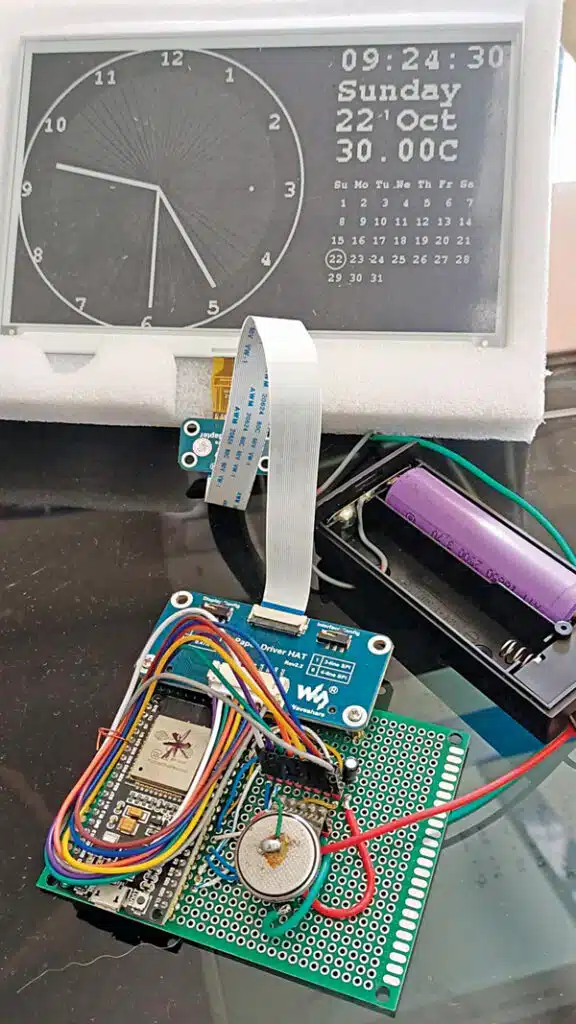
We designed a Personalized DIY E-Paper Clock Using ESP32 Microcontroller. Circuit Diagram and Code explained in the article.
E-paper is continuously evolving. The day is not far when e-papers will replace the current OLED screens of mobiles and other handheld devices, resulting in significant reductions in power consumption and increased usage time.
POC Video Tutorial In English
POC Video Tutorial In Hindi
Also Read: Difference between E-paper display and Normal Display
We are fascinated by the vivid colours of the e-paper, which remain displayed even when the power supply is removed, true for both black-and-white as well as coloured e-papers. The >170-degree viewing angle is an extra advantage, and with no backlight, e-papers reflect the ambient light incident on them, resulting in extremely low power consumption.

However, one significant drawback of the e-paper is its slow refresh rate, ranging from 3 to 8 seconds. This is the main reason why e-papers have not yet entered the mobile screen arena; they are mostly limited to e-readers and clock displays, which feature only hour and minute displays. Fig. 1 displays the E-paper clock project’s prototype.
The components (bill of materials) used in this E-paper clock are listed below.
| Bill of Materials | ||
| Items | Quantity | Description |
| ESP32 – MCU (MOD1) | 1 | Microcontroller |
| 3.3V voltage regulator (IC1) | 1 | HT7333A regulator |
| 19cm (7.5-inch) black- and-white e-paper (MOD2) | 1 | Display |
| Wires, PCB, connector | ||
| 10µF, 16V electrolytic capacitors (C1, C2) | 2 | |
| RTC module (MOD3) | 1 | DS3231 |
E-paper Clock Circuit
Fig. 2 illustrates the circuit diagram of the E-paper clock. The clock is built around ESP32 MCU (MOD1), 19cm black-and-white e-paper display (MOD2), DS3231 RTC module (MOD 3), 3.3V regulator HT7333A (IC1), and a few other components.










